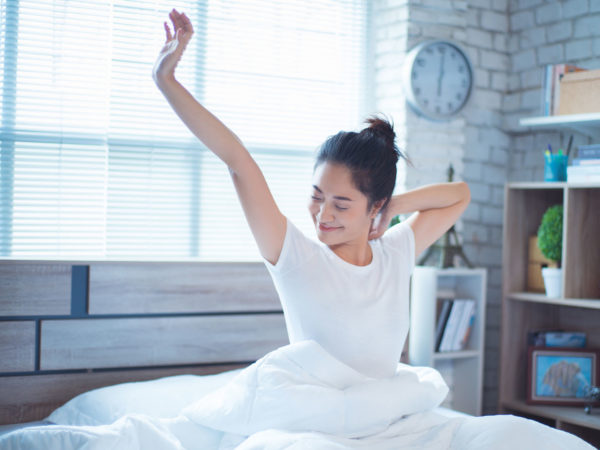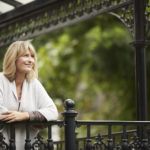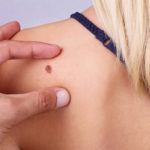How Does Sleep Affect Breast Cancer Risk?
Can you please explain why women who get up early have a reduced risk of breast cancer? I would also like to know whether women can lower their risk by changing their sleeping patterns.
Andrew Weil, M.D. | January 24, 2019

A recent study concluded that women classified as “larks,” who go to bed earlier in the evening and rise earlier in the morning, have a lower risk of breast cancer than night owls, who stay up later and get up later in the morning.
The findings come from researchers at the UK’s University of Bristol who looked at bits of DNA that determine whether women are likely to be larks or night owls. They then used this information to assess more than 400,000 women in two United Kingdom health databases and found that larks were 40 percent less likely to develop breast cancer than night owls. At least, that’s what the headlines said. In fact, the researchers focused only on an eight-year period of the women’s lives and showed that during that time, only one in 100 larks developed breast cancer compared to two in 100 night owls.
They didn’t independently determine or verify the sleeping habits of the study participants – instead, they asked the women how they ranked themselves on a scale ranging from being a morning or evening person. The research did not establish cause and effect, nor did it reveal a biological explanation for why or how the timing of sleep and waking could affect the risk of breast cancer. Lead author Rebecca Richmond said further investigation is needed and that it is too soon to advise women to change their sleeping habits based on the findings.
We’ve known for some time, however, that there is a link between breast cancer risk and night shift work. I reported on the latest research on this in February of this year (2018) after researchers in China published findings showing that long-term night shift work increased cancer risk by 19 percent, including a 41 percent increased risk of skin cancer, a 32 percent increased risk of breast cancer and an 18 percent increased risk of gastrointestinal cancer (compared to women who didn’t work the nightshift long term).
When they looked only at female nurses, the researchers saw a 58 percent increased risk of breast cancer among those who worked the night shift. Furthermore, this risk increased by 3.3 percent for every five years of night shift work. GI cancer was 35 percent higher and lung cancer 28 percent higher among nurses who worked at night. Again, this study didn’t prove cause and effect.
A possible mechanism by which shift work might cause breast cancer is that even brief exposure to artificial light at night suppresses the pineal gland’s production of melatonin, a neurotransmitter with strong anti-cancer properties.
The latest findings on the potential breast cancer risks of larks and night owls were presented at a cancer conference in Glasgow, Scotland and haven’t yet been published in a peer-reviewed scientific journal. They may tell us something new, but as things now stand, we have no idea how women’s sleeping habits affect risk relative to other well-established factors such as a family history of the disease, estrogen exposure, being overweight, and alcohol consumption.
Andrew Weil, M.D.
Source:
Rebecca Richmond et al, “Women who are ‘larks’ have a lower risk of developing breast cancer: Analyses of genetic variants show the effect of sleep on breast cancer risk.” Presentation at 20108 National Cancer Research Institute conference, November 6, 2018














